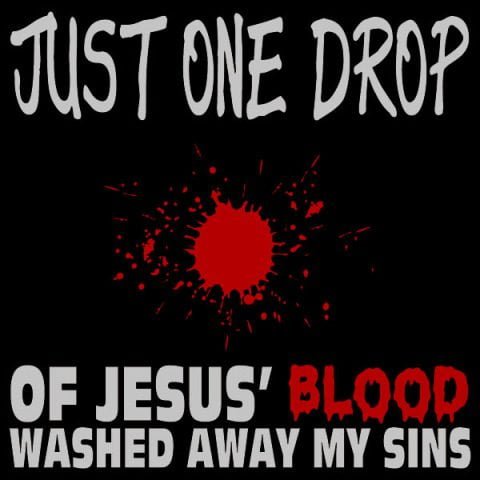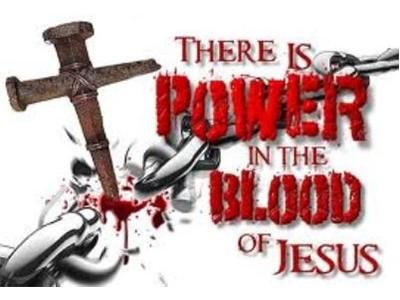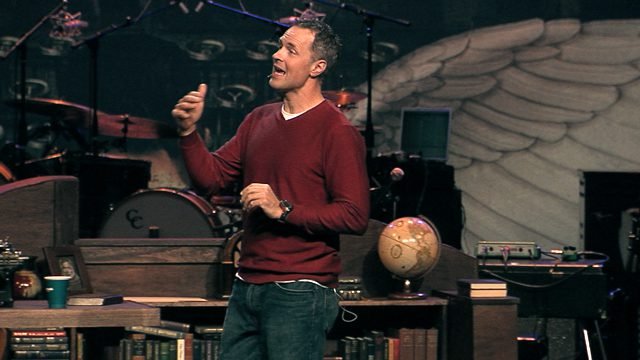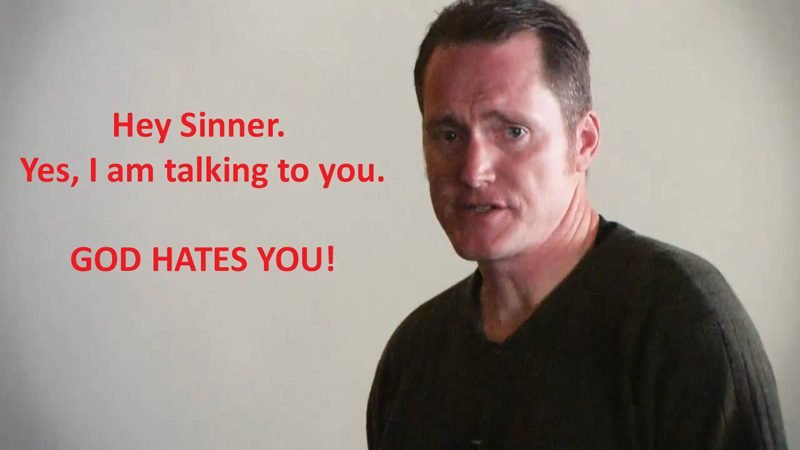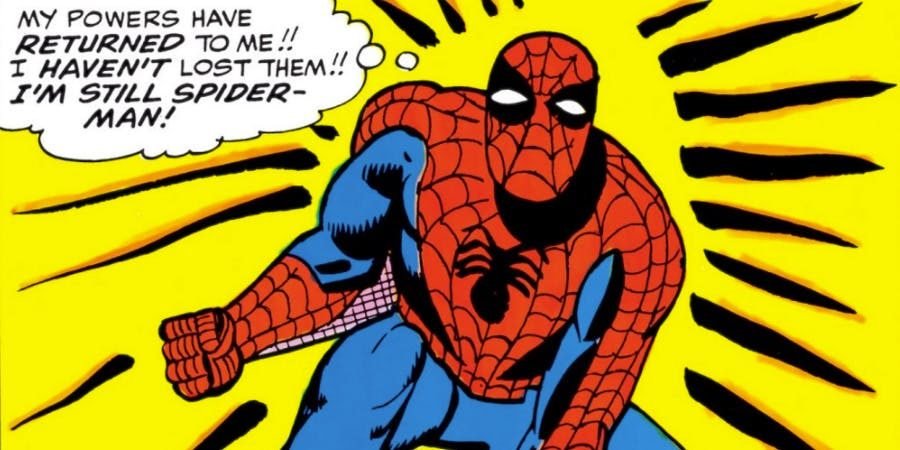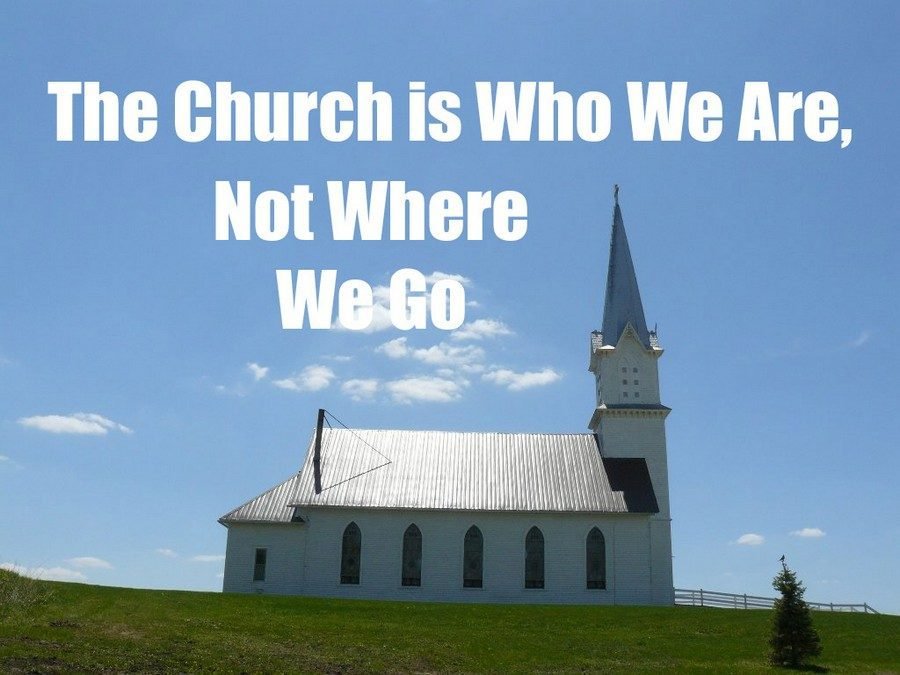
As I was driving to my grandson’s baseball game several years ago, a message on an Evangelical church’s sign caught my attention. It said, The Church is WHO We Are, Not WHERE We Go. I chuckled as I read the sign, saying to myself, and I bet everyone who attends this church really believes this message is true. Evangelicals love their clichés. This one, in particular, presents a worthy, thoughtful sentiment, but does it represent how things really are in most Evangelical churches? This cliché suggests that the “church” is the people, and not the steeple. Is this really true? I think not.
I am an old, crusty curmudgeon these days. I have seen a lot of “church” in my lifetime, and, even now, I continue to pay attention to what churches say and what they actually do. Rarely do their words match their works. Christians may want to believe that the “church” is the people, but their actions suggest that buildings, steeples, and land are the church, and they are willing to fight to the death to hang on to their material possessions.
We are two thousand years removed from when Jesus walked the streets of Jerusalem and later died on a Roman cross. His early followers met in the outer court of the Temple, in homes, and anywhere two or three of them were gathered together. The early church didn’t own buildings or land, nor did they have bands, programs, colleges, seminaries, or paid pastors. The Apostle Paul, the ministerial gold standard, was bivocational. He didn’t have a 401(k), medical and dental insurance, paid vacation, or a church-provided automobile. I roll with laughter when a pastor says his church is just like the church of the first century. Really? In what way?
Clergymen are religious professionals who are paid to preach sermons, visit the sick, bury the dead, and wed the clueless. Much like their counterparts in the “world,” clergymen have insurance, vacation benefits, and retirement plans. These humble men of God are also given special Federal and state tax breaks that are available to no one but them. These tax breaks save ministers hundreds and thousands of dollars a year. And because the churches they pastor are considered by default to be tax-exempt, pastors can also buy automobiles, books, computers, and anything else related to the “work” of the ministry and not pay sales tax on their purchases. But wait, there’s more! as TV pitchman Billy Mays would say. Clergymen also receive the same tax benefits as business owners/self-employed people, and, if they so choose, they can opt out of paying Social Security taxes. There is nothing pastors do — not even their preaching and teaching — that remotely resembles what is recorded in the gospels or the book of Acts. Whatever the early church might have been, it died centuries ago and no longer exists. In its place is what is called the ”institutional church” or ”organized Christianity.” Evangelicalism, both at the church and denominational level, is a hungry machine that requires people and their money to fuel its work.
So, the church is certainly the people, but is also buildings, lands, and material goods. I live in an area that has a static, aging population. Dreamers speak of the days coming when our downtown areas will be bustling once again with people and commerce and churches are filled with people worshiping the Lord. These wearers of rose-colored glasses believe rural Ohio communities will return to the glory years of the 1950s. Millions of dollars are spent revitalizing local communities, yet nothing changes. Old people die, young people move away, and some dumb-ass business guru thinks we need one more pizza place. These eternal optimists never seem to see things as they are. I love listening to their magnificent plans, but I am a pessimist — also known as a realist — and I know that our glory days are behind us and all we can do is maintain what we have. One local politician suggested building a multi-million-dollar tri-bridge across the confluence of the Maumee and Auglaize rivers. Throw in some bike trails and dog-walking parks, and young professionals will want to stay or move into the area because of our wonderful amenities. I ask, and exactly where are they going to work? And does anyone seriously believe that someone is going to relocate here just because we have a fancy bridge? Stop with the nonsense, and see things as they are, and not as you wish-upon-a-star hope they will be.
Local churches are also in numeric and financial decline. More than a few local churches are on life support, managing financially from bequests from the estates of dead members. There are a hundred or so Christian churches within a thirty-minute drive from my home. Many of these churches are struggling congregations that would be better off if they closed their doors or merged with other churches. Why do they continue to hang on? Simple. The church may, to some degree, be the people, but it most certainly is buildings, lands, and stuff. When faced with closure, churches will go to great lengths to hang on to their buildings. In their minds, they cease to be the church if they don’t have a building.
There are a lot of Methodist churches in rural Northwest Ohio. Most of these churches have small attendances, and are often pastored by men or women who pastor two or three churches at a time. Some of these churches are just a few miles away from one another. If, as the aforementioned cliché says, the church is the people and not their buildings, why don’t these small, struggling, near-death churches merge? Why? you ask. They would have to give up their buildings. Additionally, some of these churches are sitting on thousands of dollars. This money is used to keep the church afloat. If they merged with another church, that church would get all their money! No, we will not merge, churches say. Our communities NEED us! I thought the church is the people, and not buildings and lands. Jesus and his disciples did not concern themselves with this world’s goods. Shouldn’t twenty-first-century Christians follow in their steps?
I have witnessed and been part of countless church fights over material things. Several churches I pastored were sitting on large sums of cash, saving it for . . .? Well, no one could ever tell me what they were saving it for. In their minds, the value of their churches was reflected by buildings and bank account balances. These followers of Jesus would love to see attendance increases, but if that doesn’t happen, at least they have a beautiful near-empty building and lots of cash on deposit at the local bank. First Baptist Church — Making Jesus Proud for 200 Hundred Years! The pews are empty, the baptismal is dry, but, hey, did you see our fancy state-of-the-art kitchen and air-conditioned dining hall? Praise God!
Evangelicals love to present themselves as people who are above the fray; people who are devoted followers of Jesus; people who walk in the steps of the early church; people who are, thanks to the saving grace of God, morally and ethically superior. However, when the façade is ripped away, what we find is that Christians love this world every bit as much as atheists, agnostics, humanists, and other non-Christians. Their love of this world is reflected in the churches they attend; churches with expensive, ornate buildings; churches with overpriced, incestuous (helping fat sheep get fatter) ministry costs; churches with paid staffs, complete with all the benefits white-collar workers enjoy in the business world. These churches are often sitting on thousands and thousands of dollars. One banker told me, Bruce, if I told you their names, you be shocked by which churches in town have hundreds of thousands of dollars on deposit at our bank. He knew the church I pastored didn’t have two nickels to rub together. We literally lived from offering plate to hand. In the eleven years I pastored the church, I never received a regular weekly salary. For a while, the church took up a weekly offering for me and my family. This was great on the weeks people loved my sermon, not so much when they didn’t. This is not to say that we weren’t “worldly” too. We were, spending thousands of dollars and man-hours on our buildings and property. We may — in my opinion — have done “church” better than the Methodists and Presbyterians, but we loved the here-and-now too.
The cliché, The Church is WHO We Are, Not WHERE We Go, might be credible if it were lived out day by day by Christian people. But, it’s not. A nearby mainline church with an attendance of twenty-five or so people recently dropped $250,000 on repairs and upgrades to their building. Why? Wouldn’t it be better if churches merged? More people, more money, more outreach, right? Instead, dozens and dozens of local churches are hanging on until the last person with a key dies or Jesus returns to earth. Granted, churches — which are private clubs — are free to do whatever it is they want to do. Most Christians derive psychological benefits from belonging to a church. Being part of a Christian club gives them a sense of purpose and meaning. Who am I, then, to criticize what they do or don’t do?
I would agree with this sentiment if it wasn’t for the fact that many churches believe that they are making a difference in their communities; that they are indispensable; that if their church buildings were no longer there, local communities would suffer. It’s this bigger-than-life attitude of churches with which I have a problem. There are seven churches within five miles of my home: three Church of God, one Methodist, one Catholic, and two generic Evangelical churches. If all of these churches closed their doors tomorrow, community life would go on without a hitch. Members of these churches would certainly feel loss, but the rest of us? Ho hum, off to work we go. I see no meaningful imprint on the community from these churches. None. And that’s fine as long as these churches are just places for weekly social gatherings and fellowships. It’s when they take on in their minds a larger-than-life view of themselves that I begin to take a closer look at what they actually do compared to what they own and spend their money on. From my seat in the atheist pew, it sure seems to me that, yes, the church is the people, but those people sure are focused on buildings, bank accounts, padded pews, and all the creature comforts life can afford. It seems — dare I say it? — that most churches are in no hurry to pack their bags and leave this world of earthly sorrow; that having the next church BBQ, bake sale, rummage sale, ice cream social, and fried chicken dinner is far more important than caring for the sick, feeding the hungry, clothing the poor, and caring for widows and orphans.
Bruce Gerencser, 66, lives in rural Northwest Ohio with his wife of 45 years. He and his wife have six grown children and thirteen grandchildren. Bruce pastored Evangelical churches for twenty-five years in Ohio, Texas, and Michigan. Bruce left the ministry in 2005, and in 2008 he left Christianity. Bruce is now a humanist and an atheist.
Connect with me on social media:
Your comments are welcome and appreciated. All first-time comments are moderated. Please read the commenting rules before commenting.
You can email Bruce via the Contact Form.

